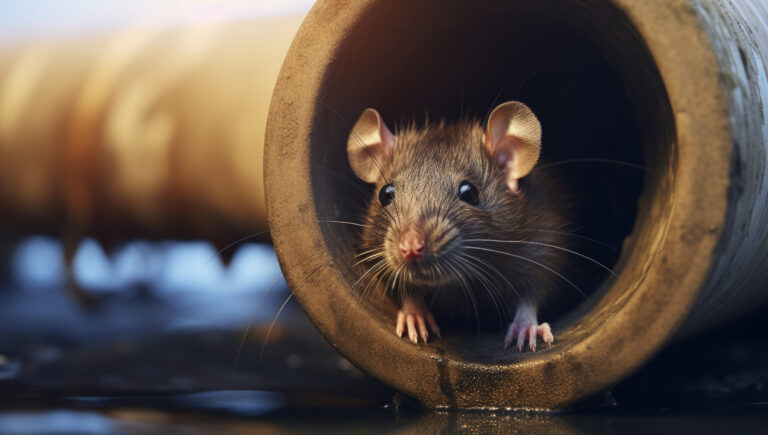Rats may not be the most welcome guests in a home, but there’s no denying they are fascinating creatures. One of the most impressive things about them is their incredible sense of smell. While we often focus on their ability to chew or hide, understanding how rats use their noses can help us keep them out of our homes, especially with help from a fast and effective pest control company.
How Good Is a Rat’s Nose?
Rats rely on smell more than almost any other sense. Their noses are packed with nearly 1,500 smell receptors, more than dogs and way more than humans. This allows rats to pick up tiny scent particles in the air, even from far away. It’s like they have a super-powered radar that guides everything they do.
Inside their nose, rats have something called olfactory neurons. These tiny cells send messages to their brain about what they’re smelling. They also have cilia, which are hair-like structures that grab odor molecules. That’s how they can figure out what’s nearby, what’s safe, and what to avoid.
A Special Organ for Smelling Signals
Rats also have a vomeronasal organ (VNO), which helps them detect special chemicals called pheromones. Pheromones are like scent messages. They tell rats if another rat is nearby, if that rat is scared, or if it’s looking for a mate. These messages help rats make decisions about where to go and what to do.
What Do Rats Smell For?
1. Finding Food
A rat’s nose helps it find food, even if that food is sealed away. Rats can smell through walls, cabinets, and even closed containers. They use this power to find snacks like leftover crumbs, garbage, pet food, or anything else that might feed them.
2. Staying Safe
Rats can sniff out danger, too. They know how to avoid places where predators like cats or birds might be hiding. They also use scent to remember safe paths and hiding spots.
3. Navigating Their World
Even in the dark, rats can use their nose like a map. By following familiar scents, they move through tunnels, walls, and basements without getting lost.
4. Sensing Weather Changes
Believe it or not, rats can even smell changes in the air that signal a storm is coming. When the weather turns, they often look for warm places to hide, like inside your home.
Rats and Human Use
Because their noses are so powerful, rats have been trained to sniff out more than just cheese. In some parts of the world, they help search for landmines, detect certain diseases like cancer or tuberculosis, and even find illegal animal products like ivory. They can be trained to remember smells for months, making them valuable helpers.
What This Means for Pest Control
Knowing how sharp a rat’s nose is can help us stay one step ahead. Here are a few ways to use this knowledge:
Seal up food tightly so smells don’t attract rats.
Clean regularly to get rid of crumbs or spills.
Use scent-based deterrents like peppermint or eucalyptus, which some studies show rats dislike.
Fix leaks and remove clutter, since rats also use smell to find water and nesting materials.
Understanding a rat’s sense of smell isn’t just interesting, it’s useful. By learning how they find what they need, we can take steps to keep them out of our homes and live


